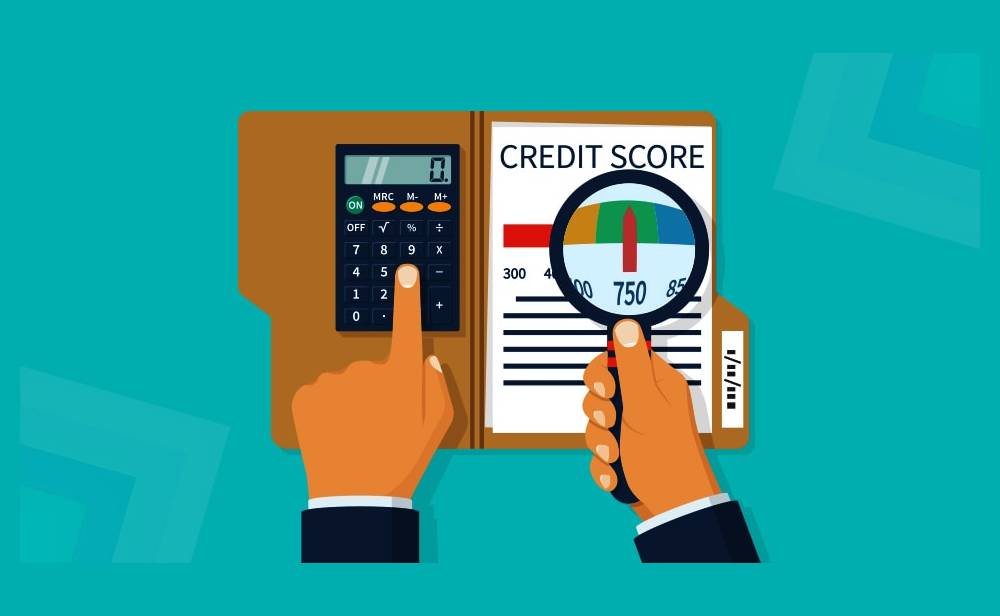Check your Credit Score
Why You Should Check Your Credit Score Regularly?

Your credit score is a key piece of information that is visible to lenders when deciding to approve a loan and pay you. The higher your credit score, the better your reputation will be, meaning lenders will see you as a reliable borrower.
Do you know your credit score? If you check your credit score regularly, you will be better informed and better equipped to improve your credit standing. Here are five reasons why you should check your credit score regularly so you can start rebuilding your credit.
Generally, a credit score is a three-digit number designed to represent your credit risk (the likelihood that you will pay your bills on time). Your credit history is a record of how you manage your credit accounts. This may include your current and past credit accounts, information on your payment history, and the total amount you owe. Credit scores are calculated using information from your credit reports, although credit scoring models vary.
Top 5 reasons why you should check your credit report:

1. It’s Easy:
As our world goes digital, access to your credit information is easier than ever. So what kind of credit information is there? Your credit report and your credit score are:
- Your credit report documents the date of your borrowing, including active debts, payments, credit limits, and how much is still owed on each of your loans. Your credit activity, which is found on your credit report, affects your credit score.
- Your credit score is a three-digit number between 300 and 900 which represents your credit risk. Your Credit Risk It is likely that you will pay your bills on time, or repay the loan on agreed terms. The higher your credit score, the lower your risk of lending, which means more lenders will want to approve you for new credit.
You are entitled to receive one free credit report each year from two Canadian credit bureaus: Equifax and TransUnion. Your credit score does not include your credit score, however, you can access your score instantly online with a one-time fee. It’s as easy as clicking a button. You can also read how to check our Credit Score 101 for more information.
2. Checking your credit score will not lower it
Many people think that checking their credit score will reduce it but this is not always the case.
There are two types of credit inquiries:
Soft inquiry:
When you request a copy of your credit report or credit score, it is considered a “soft inquiry” and will not affect your credit score. Lenders can also complete soft inquiries if they are doing background checks to approve a car loan, mortgage or new credit card.
Hard inquiry:
On the other hand, a “hard inquiry” will affect your credit score. Hard inquiries occur when a potential lender reviews your credit history to make a final decision on a loan application. These types of credit checks will lower your score and will usually last up to two years on your report.
3. If you are at the top of your credit, you will be better at catching mistakes
Reviewing your credit report once a year (at least) is the best way to stay on top of your credit activity and make sure the credit bureau makes no mistakes. This happens and based on the mistake, it can lower your credit score, which is definitely something you don’t want. Checking your score is also a good way to make sure you are not being charged through false accounts and that identity fraud has not occurred.
4. You will not be surprised by the results of the loan.
If you’ve ever been denied a loan, you know it’s not a good idea. By knowing your credit score, you can avoid being surprised by the consequences of a future loan application.
For most lenders, the decision to approve or reject your loan application is based on your three-digit credit score (see What is the average credit score by age in Canada for a detailed breakdown). In short, the higher your credit score, the higher your credibility and the lower your credit risk. Most lenders want reliable lenders and are more likely to offer good interest rates to people with higher credit scores.
5. Knowing your credit score will help you improve your credit
Knowledge is power and it empowers you to know where your credit stands. Ultimately, knowing your credit score – whatever it is – will help you build your credit and work toward your financial goals.
Even if your credit is at the bottom of the scale (less than 620), this is not the worst thing. Now a low score doesn’t mean a low score forever and there are many things you can do to improve it. Our guide to rebuilding and repairing your credit score will help you learn more about your credit score, how it works, and how to recreate it if you don’t want to make it your own. can. Download the guide today and take the first steps to improve your financial health.
Where to check your credit score?
There are many ways you can check your credit score for free. If you want to monitor your credit score regularly, using the free service is the best way.
The one you can try is annualcreditreport.com. Your bank may also offer a credit monitoring service that provides free updates to one of your credit scores. Ask your bank or credit card issuer what services are available. Or, if your credit card issuer is part of the new FICO Open Access program, you will receive a free copy of your FICO score with each statement, as well as the key factors affecting your score. Credit cards with free FICO scores include Discover, Chase, Bank of America, Barclaycard, Commerce Bank, American Express, First Bankcard, and Walmart credit cards.
You can also buy your credit score through major credit bureaus: Equifax, Experian, and TransUnion, or through myFICO.com. Each of these businesses offers a credit monitoring service that you can pay monthly.
Q. What are the key components of a credit report?
The key components of creating a credit report are:
- Personal Information
- Contact information
- Job information
- Account information
- Inquiry information
How often should you monitor your credit score?
The number of times your credit score changes daily depends on how often the information in your credit report changes. If you are planning to buy a house or a car soon, checking your credit score frequently will help you stay prepared. Otherwise, it is enough to monitor your credit score from month to month.
Remember that your credit score is a number that displays your credit report information at a specific point in time. To change your credit score, you need to replace the basic information in your credit report with good spending and payment habits. Most credit score providers, even the free ones, will provide you with basic details about the factors that affect your credit score. You can use this information to decide what you can do to improve your score.
As you monitor your credit score more frequently, you will notice that your credit score goes up and down, sometimes as usual. As long as your credit score doesn’t drop significantly and stays the same, you don’t have to worry about changes in your score.
Also note that your credit scores may vary between different providers, especially if the basic credit data is from different credit bureaus. This difference is a common part of credit scoring.






